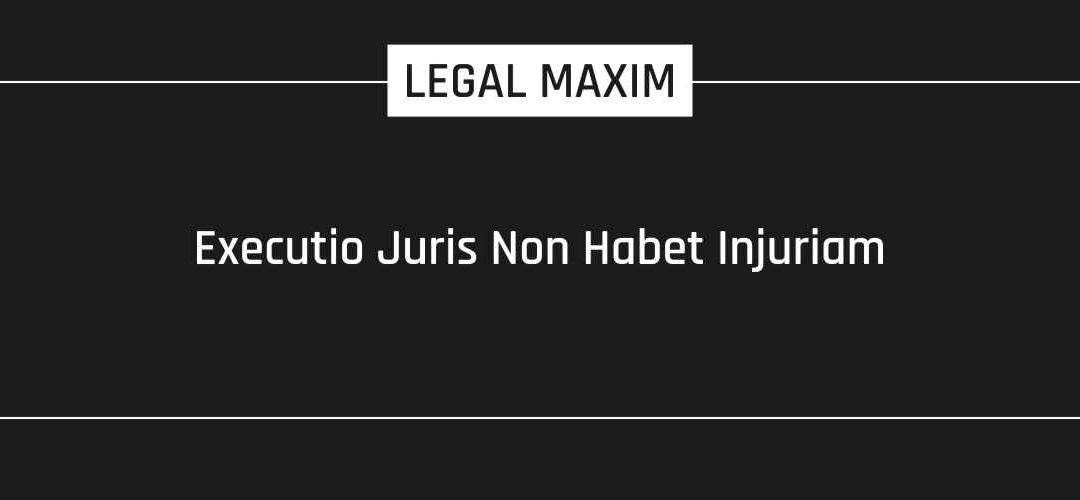Literal Meaning
The execution of the law does no injury.
Origin
Latin
Explanation
The meaning of the maxim ‘executio juris non habet injuriam’ is that the execution of the law causes no injury. It means, if an action is brought in a court which has jurisdiction on insufficient grounds and no injury is caused, action cannot be brought for the same. No damages can be recovered for executio juris non habet injuriam. The court of law has to observe that the process of the court is not made use of for the purpose of oppression and injustice. Anyone who has been punished cannot claim damages for the loss suffered due to the punishment, as the punishment was the execution of the law and it is equivalent to no injury. Thus, he/she cannot ask for the damages in such a case. The harm/damages suffered by the punished party cannot be considered as injury, as it is the execution of Law. The party who sets the law in motion by laying the information is not liable unless he acted maliciously and without reasonable and probable cause.
Illustration
A has been sentenced to 3 years imprisonment in a cheating case, which caused a huge loss to B. Now A cannot claim for injury since the execution of the order of the court cannot be termed an injury, as the execution of the law does no injury.
Case Laws
In Shanmugam vs. Arthanari, the Madras High Court has referred to the above maxim, executio juris non habet injuriam.
In G.Suresh Mohan vs. S.Lilly, the Madras High Court referring to the maxim Executio juris non habet injuriam held that Execution of judgment will not work wrong. The learned counsel submitted that if the decree is executed, then there will be no purpose in prosecuting the matter before the appellate forum and everything will end in a fiasco.
